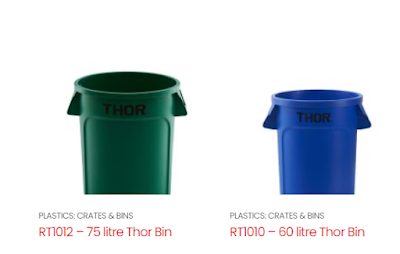Selecting the Right Industrial Truck for Your Needs: A Forklift Fleet Fit for Duty
Industrial trucks, often referred to as forklifts,
are the backbone of many warehouses and material handling operations. They keep
things moving, ensuring efficient product flow and maximizing productivity. But
with a vast array of industrial trucks from industrialtruck.com.au,
choosing the right one for your specific needs can feel overwhelming. Fear not!
This blog will equip you with the knowledge to navigate the selection process
and find the perfect industrial truck for your operation.
Load Capacity, Lift Height,
and Maneuverability
Before diving into industry specifics, let's explore
the holy trinity of industrial truck selection: load capacity, lift height, and
maneuverability. These three factors are crucial for ensuring your chosen truck
tackles your material handling tasks effectively.
Load Capacity: This refers to the maximum weight the
truck can safely lift and transport.
Exceeding this limit can lead to dangerous tipping and equipment
damage. Carefully assess the weight of
your typical loads and factor in a safety buffer (usually 10-20%) to account
for potential variations.
Lift Height: This determines how high the truck can
elevate your load. Consider the highest
storage rack level you need to access and add some additional height for
comfortable handling. Don't forget to account for door clearances and overhead
obstacles.
Maneuverability: This refers to the truck's ability
to navigate tight spaces and make sharp turns.
Tight warehouse aisles or congested loading docks demand a highly
maneuverable truck, whereas spacious facilities might prioritize travel speed
over tight turning circles.
Industry-Specific
Considerations: Finding the Right Fit
Now, let's delve into industry-specific requirements.
Different industries have unique material handling challenges, and the ideal
industrial truck will cater to those specific needs. Here are some examples:
Warehousing and Distribution: In fast-paced
warehouses with narrow aisles, narrow-aisle forklifts (NAFs) are king. Their compact design and tight turning radius
allow them to navigate congested spaces efficiently. For heavier loads or higher storage racks,
reach trucks offer extended reach and powerful lifting capabilities.
Manufacturing: Manufacturing facilities often require
industrial trucks capable of handling bulky or awkward materials. Side loaders, for example, excel at
maneuvering alongside loads for side-to-side transport, while rough-terrain
forklifts can handle uneven surfaces and outdoor environments common in
construction settings.
Retail: Retail stores frequently need industrial
trucks for unloading deliveries, stocking shelves, and managing inventory. Pallet jacks are a popular choice for their
affordability and ease of use in moving palletized goods over short
distances. Order pickers, featuring an
elevated platform for the operator, are ideal for retrieving items from high
shelves.
Cost vs. Benefit Analysis:
Making the Smart Choice
Industrial trucks are significant investments, so
it's crucial to find the balance between cost and functionality. Here's how to approach this analysis:
Identify Needs vs. Wants: Clearly define your essential requirements –
the features absolutely necessary for your operation. Separate these from desirable but
non-essential functionalities.
Consider Long-Term Costs: Look beyond the initial purchase price. Factor in maintenance costs, fuel efficiency
(for gas-powered models), and potential operator training needs.
Explore Alternatives:
Consider the possibility of renting specific trucks for occasional tasks
instead of purchasing them outright.
This can be cost-effective for infrequent or seasonal needs.
Seek Expert Advice:
Don't hesitate to consult with industrial truck dealers or material
handling specialists. Their experience can prove invaluable in navigating the
selection process and finding the best truck for your budget.
The Final Word: Choosing the
Right Industrial Truck
Selecting the right industrial truck is a strategic decision that impacts efficiency,
productivity, and safety. By carefully
considering your load capacity, lift height, maneuverability requirements,
industry-specific demands, and cost-benefit analysis, you'll be well-equipped
to choose the perfect industrial truck.
Remember, it's not just about finding a truck; it's about finding the
perfect partner for your material handling needs.



Comments
Post a Comment